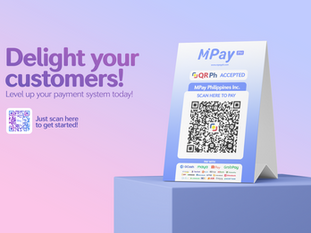

E-payment innovation: Securing the future of e-commerce
Sep 9, 2024
3 min read
1
7
0
Originally published in Manila Times by Janette Toral on September 8, 2024
As e-commerce expands, payment systems are evolving to meet the demands of a growing digital economy. New technologies, changing consumer behaviors, and regulatory frameworks are shaping how businesses and consumers transact.
Digital wallets have gained massive popularity due to their convenience and security, particularly during the pandemic. These wallets enable users to make transactions without the need for physical cash or cards, which has led to their widespread adoption in both online and offline settings. Super apps, like GCash, GrabPay, and Maya, which combine multiple services like payments, online shopping, investments, banking, ride-hailing, and food delivery, among others, have made digital wallets even more appealing to consumers.
The rise of contactless payments, facilitated by digital wallets, has been a key driver in the shift toward cashless transactions. Digital wallet providers are also incorporating loyalty programs, cashback offers, and rewards systems, further incentivizing usage. This shift in consumer behavior is enabling e-commerce businesses to capture more sales, as digital wallets make it easier for users to complete transactions quickly and securely.
Regulatory framework
The Bangko Sentral ng Pilipinas (BSP) plays a critical role in overseeing and regulating payment systems to ensure that they are secure, efficient and reliable. The National Payment Systems Act (NPSA) serves as the legal foundation for the BSP's regulation of payment systems, which includes monitoring risk management, ensuring transparency, and protecting consumers.
Through the NPSA, the BSP enforces strict anti-money laundering (AML) compliance and requires that payment systems adhere to Know Your Customer (KYC) protocols. The BSP is also actively promoting digital financial inclusion, helping to bring secure digital transactions to the unbanked and underbanked populations in the country. This regulatory environment is essential for fostering trust in digital payments, making it easier for consumers to participate in the e-commerce economy.
Payment security
Companies like payment gateways, acquiring banks, processors, and third-party service providers that handle card payments on behalf of merchants are required to comply with the Payment Card Industry Data Security Standard (PCI DSS). It aims to protect cardholder data by setting stringent security standards. Compliance helps prevent data breaches, which could result in financial and reputational damage.
Its latest version (4.0) was released to address the evolving threats in payment security. The update emphasizes stronger security controls, more flexibility, and continuous monitoring. Key changes include mandatory multi-factor authentication (MFA) for all users accessing cardholder data, not just for remote access, and a push toward real-time monitoring of systems to detect and mitigate threats as they occur.
Another major development is the introduction of customized security controls, allowing businesses to implement their own security measures as long as they meet the intent of the standard. For e-commerce businesses, PCI DSS 4.0 provides enhanced security, ensuring consumer trust and protecting against data breaches and fraud, both of which are critical for maintaining the integrity of online payments.
BNPL
Buy now, pay later or BNPL is transforming the way consumers pay for goods, offering flexibility in making purchases without needing to pay the full amount upfront. This payment option is particularly appealing to younger consumers, such as millennials and Gen Z, who are looking for alternative ways to finance their purchases.
BNPL services allow customers to break down payments into manageable installments, which can lead to higher conversion rates and larger average order values for e-commerce retailers. As BNPL adoption grows, regulatory bodies may step in to ensure responsible lending and protect consumers from over-indebtedness. For merchants, offering BNPL can be a significant advantage, as it aligns with consumer demand for flexible payment options while boosting sales.
Cross-border payment technologies
As e-commerce expands beyond domestic borders, cross-border payment technologies are becoming increasingly important. Innovations like blockchain and distributed ledger technologies (DLT) are revolutionizing cross-border transactions by making them faster, cheaper and more secure. Companies like Ripple and Stellar are at the forefront of using blockchain for real-time payment settlements, eliminating the need for traditional banking intermediaries and reducing transaction fees.
Multi-currency digital wallets and cross-border payment networks are also helping businesses facilitate international transactions, enabling users to hold and convert multiple currencies with ease. This is particularly beneficial for Filipino e-commerce businesses looking to tap into global markets, as it simplifies currency conversions and reduces the friction in handling international payments.
The trends in payment systems are critical to the continued growth of the e-commerce market in the Philippines. Digital wallets offer consumers convenience and security; PCI DSS 4.0 ensures that businesses maintain robust security standards; BNPL provides flexible payment options; and cross-border payment technologies open up global opportunities. Together, these developments create an environment where businesses can thrive, and consumers can engage in e-commerce with confidence.
As the BSP continues to support these innovations with a solid regulatory framework, payment systems will become even more accessible and reliable, contributing to the Philippines' vibrant and growing digital economy.









